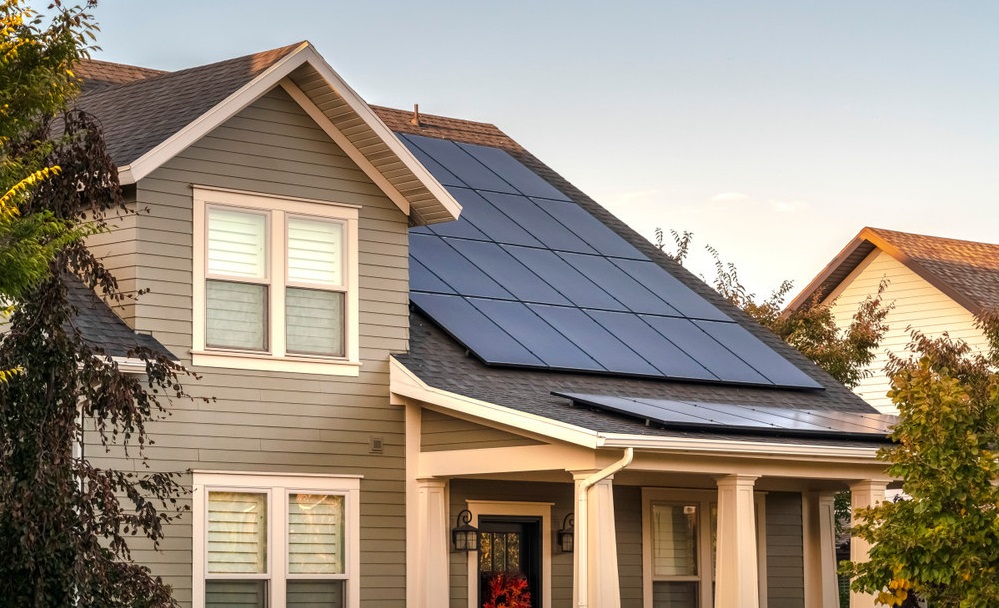
The Idaho Public Utilities Commission (PUC) voted late last year (29th December) to shift from a net metering to a net billing model for residential solar installations in a move which will make rooftop solar “unreachable” for most, according to environmental group The Sierra Club.
The decision, which is based on an application from state utility Idaho Power, came into effect on January 1st. In analysis published following the vote, The Sierra Club estimates that the policy change will reduce the compensation paid to residential solar owners for their excess power from an average of 8.8 US cents per kWh to 5.96 cents per kWh.
Unlock unlimited access for 12 whole months of distinctive global analysis
Photovoltaics International is now included.
- Regular insight and analysis of the industry’s biggest developments
- In-depth interviews with the industry’s leading figures
- Unlimited digital access to the PV Tech Power journal catalogue
- Unlimited digital access to the Photovoltaics International journal catalogue
- Access to more than 1,000 technical papers
- Discounts on Solar Media’s portfolio of events, in-person and virtual
Or continue reading this article for free
Net billing will be calculated by Idaho Power using time-adjusted rates on an annual basis, as opposed to a kWh-for-kWh exchange rate based on retail prices.
Idahoan community groups and solar industry representatives had been pushing back against the proposal prior to the vote. Alex McKinley, owner of Idaho-based solar installer Empowered Solar said: “The commissioners are saying the voices and expertise of thousands of Idahoans and small businesses are not as important as the voice of the state’s largest monopoly utility.”
He continued: “Rooftop solar is an extremely popular and effective way of combating the climate crisis, stabilising power bills, and putting power back in the hands of everyday people and Idaho Power wants to minimise it.”
In its press release following the decision, the Idaho PUC stated that: “In making its decision on Idaho Power’s application, the commission recognised that the fundamental purpose of on-site generation is to offset a customer’s own usage, that on-site generation should not create cost shifting between generators and non-generators, and that onsite generators should be given a fair value for their exported energy.”
Indeed, critics of net metering policies have previously said that it can raise electricity rates for non-self-generating customers, many of whom likely cannot afford a solar installation. This is disputed by solar advocates.
On the 28th December, the PUC also approved an increase in rates for Idaho Power customers via a monthly fixed fee called the “service charge”. The Sierra Club said that fixed rate increases disproportionately impact low-income and energy conscious households, as the increase forms a far greater portion of a monthly bill than it does for a wealthier or less efficient consumer.
Idaho Power’s proposal was based on an internally-produced study which an independent analyst, hired by the Sierra Club and other environmental groups, said was “severely undervaluing” rooftop solar’s importance to the grid.
Echoes of California
The discourse and opposition around this decision will be familiar to anyone aware of the net metering and virtual net metering changes in California over the last year or so.
In November, when the California Public Utilities Commission (CPUC) voted to reduce compensation rates for small businesses and multi-meter properties under its virtual net energy metering (VNEM) scheme, head of the California Solar and Storage Association (CALSSA) Bernadette Del Chiaro said that “the only winners here are the big utilities and their shareholders.”
And around a year before the Idaho decision, in December 2022 when the CPUC voted to slash the standard net energy metering (NEM) tariff, CALSSA was similarly scathing in calling the decision “out of step with the national pro-solar agenda”.
In early December 2023, in what is perhaps a worrying portent for Idahoans, CALSSA released a statement saying that the Californian solar industry could expect to have lost up to 17,000 jobs by the end of the year as a result of the NEM 3.0 changes.
Research from Wood Mackenzie and the Solar Energy Industries Association (SEIA) last month predicted that 2024 would see US residential solar take a downturn, in large part because of the net metering changes in California. The Idaho PUC’s decision is perhaps unlikely to help to remedy that.
Leigh Ford, executive director of the Snake River Alliance, another Idaho-based environmental group, said of the Idaho PUC: “The PUC chose Idaho Power’s profits over Idaho’s sustainable future and equitable access to clean, renewable energy. This isn’t just an attack on local solar businesses; it’s an attack on Idahoans’ right to create our own power.”
